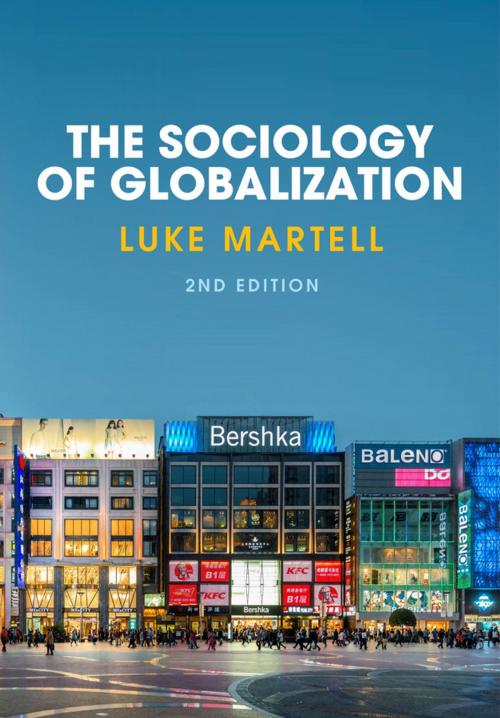| Author: | Luke Martell | ISBN: | 9780745689807 |
| Publisher: | Wiley | Publication: | December 16, 2016 |
| Imprint: | Polity | Language: | English |
| Author: | Luke Martell |
| ISBN: | 9780745689807 |
| Publisher: | Wiley |
| Publication: | December 16, 2016 |
| Imprint: | Polity |
| Language: | English |
The new edition of this accessible and wide-ranging book demonstrates the distinctive insights that sociology has to bring to the study of globalization. Taking in the cultural, political and economic dimensions of globalization, the book provides a thorough introduction to key debates and critically evaluates the causes and consequences of a globalizing world.
Bringing the discussion right up to date, the new edition includes an increased emphasis on the rise of China, the aftermath of the financial crisis and austerity, the benefits of migration and open borders, and the changing structure of global inequality. Data and literature have been updated throughout the book, with new sections on global cities, the environment and international protests, and expanded discussion of gender. Martell argues that globalization offers many opportunities for greater interaction and participation in societies throughout the world, for instance through the media and migration, but also has dark sides such as conflict, global poverty, climate change and economic insecurity.
This book will continue to be an ideal companion to students across the social sciences taking courses that cover globalization, and the sociology of globalization in particular.
The new edition of this accessible and wide-ranging book demonstrates the distinctive insights that sociology has to bring to the study of globalization. Taking in the cultural, political and economic dimensions of globalization, the book provides a thorough introduction to key debates and critically evaluates the causes and consequences of a globalizing world.
Bringing the discussion right up to date, the new edition includes an increased emphasis on the rise of China, the aftermath of the financial crisis and austerity, the benefits of migration and open borders, and the changing structure of global inequality. Data and literature have been updated throughout the book, with new sections on global cities, the environment and international protests, and expanded discussion of gender. Martell argues that globalization offers many opportunities for greater interaction and participation in societies throughout the world, for instance through the media and migration, but also has dark sides such as conflict, global poverty, climate change and economic insecurity.
This book will continue to be an ideal companion to students across the social sciences taking courses that cover globalization, and the sociology of globalization in particular.















